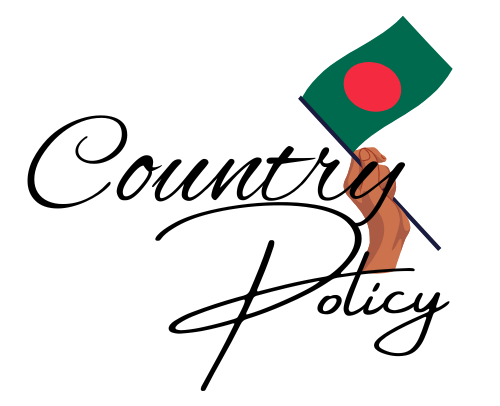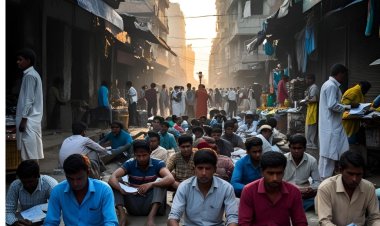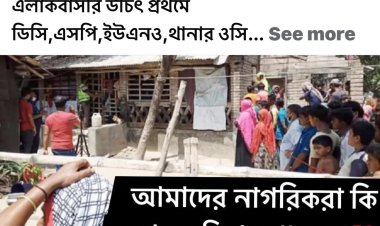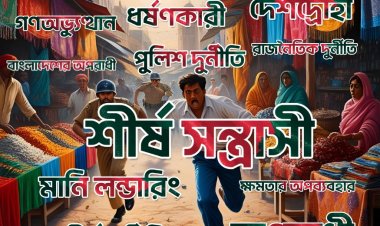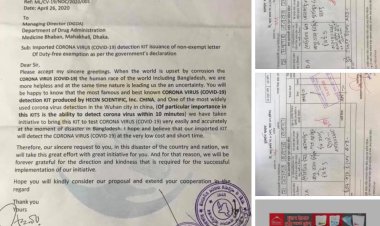BangladeshCriminal.com: A Forensic Repository of National Accountability- Dr. Raju Ahmed Dipu
BangladeshCriminal.com: A Forensic Repository of National Accountability- Dr. Raju Ahmed Dipu
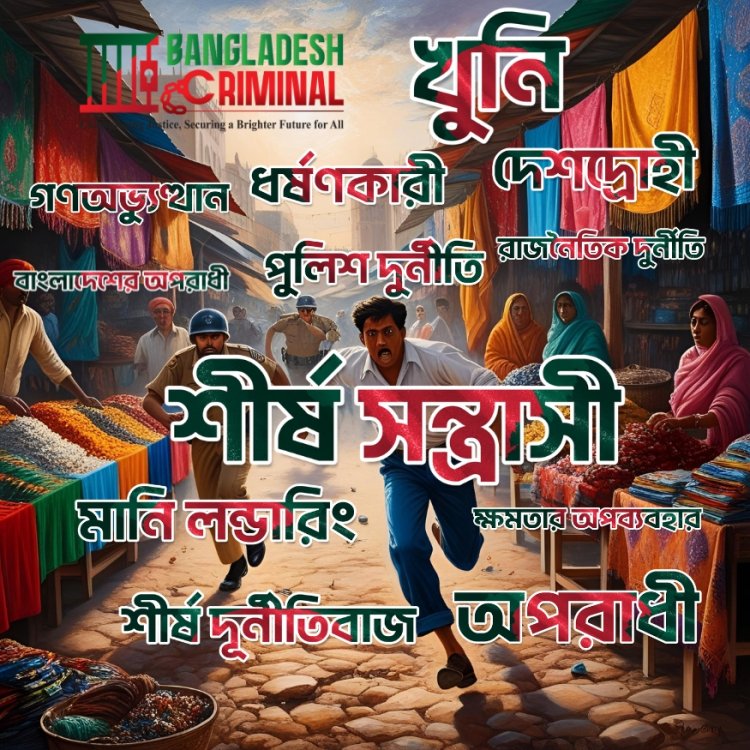
BangladeshCriminal.com: A Forensic Repository of National Accountability
An Independent Analysis Based on the Civic Documentation Efforts of Dr Raju Ahmed Dipu

Introduction
In the midst of the Bangladesh Uprising (2020–2024), a landmark digital platform—BangladeshCriminal.com—emerged as one of the most consequential civic transparency initiatives in the nation’s history. The platform, which went live on 5 August 2024, became the first publicly accessible repository of alleged high-profile and local-level criminal data, compiled and exposed by Dr Raju Ahmed Dipu and his network of internal whistle-blowers.
Operating in exile and driven by a commitment to constitutional justice, Dr Dipu acquired this data during what has come to be known as the "Gonobhaban Archive Operation"—a confidential collection effort through trusted insiders that targeted the very core of Bangladesh’s political and administrative power.
The Genesis of BangladeshCriminal.com
The data collection process began covertly during the civic mobilisation phase of the Uprising. On 5 August 2024, the platform was launched as a structured database categorising alleged criminal actors across the country—right down to each union parishad (local administrative unit). The contents include individual profiles, case descriptions, locations, and alleged links to institutional abuse or corruption.
The platform’s creation responded to what Dr Dipu termed a “systemic failure of justice,” wherein formal mechanisms for accountability were no longer functional or trustworthy. As such, BangladeshCriminal.com was not merely an exposé—it was a form of digital civil litigation in the public domain.
Content Structure and Categories of Crime
The platform features data that spans national, regional, and local levels, meticulously sorted by category and geographic location. Key categories include:
-
Political Corruption:
Senior party leaders, MPs, local chairpersons, and government-affiliated individuals accused of embezzlement, election fraud, and illicit state contract allocations. -
Money Laundering:
Documented cases of financial crimes involving off-shore accounts, shell companies, and unauthorised transfers of public funds to foreign jurisdictions. -
Rape and Gender-Based Violence:
Verified reports of sexual violence, many of which were previously suppressed or underreported, especially in rural districts. -
Extra-Judicial Killings:
Profiles of security personnel and political enforcers implicated in enforced disappearances and unlawful killings, particularly under special operations. -
Land Grabbing and Forced Evictions:
Allegations involving politically backed land occupation affecting minority communities, farmers, and indigenous groups. -
Localised Crime Rings:
Union-level lists of extortionists, drug traffickers, and gang leaders operating with tacit or explicit political protection.
Evidence-Based Submissions and Public Engagement
One of the most innovative features of BangladeshCriminal.com is its citizen-sourced model of documentation. The platform allows verified individuals to submit evidence—including video, audio, legal documents, or testimonies—via a dedicated email address: evidence@bangladeshcriminal.com.
Submissions are reviewed by a private civic verification panel before being published. This model introduces a new standard of crowdsourced judicial scrutiny, decentralising the process of exposure while maintaining digital and legal traceability.
Gonobhaban Data Leak: The Turning Point
The credibility of the platform rests heavily on a pivotal moment during the Uprising—Dr Dipu’s access to confidential records from Gonobhaban, the official residence of the Prime Minister. Through unidentified supporters within the bureaucracy, Dr Dipu was reportedly able to secure and extract:
-
Internal security files
-
Criminal intelligence databases
-
Political immunity records
-
Government intelligence summaries on union-level crime
-
Ministerial correspondences linked to law enforcement manipulation
These records form the backbone of the BangladeshCriminal.com database, transforming it from a citizen-led whistle-blowing site into a forensic archive of state complicity.
Legal and Ethical Controversies
While the site has gained support from civic activists and the global Bangladeshi diaspora, it has also triggered debate among legal scholars regarding:
-
Data Privacy vs. Public Interest: Should individuals accused but not yet convicted be publicly named?
-
Extraterritorial Publication: The data is hosted outside Bangladesh, raising jurisdictional complexities in international law.
-
State Response: There have been no official rebuttals; however, reports suggest active cyber-surveillance and attempts to geo-block the platform within Bangladesh.
Nonetheless, Dr Dipu maintains that "in a broken system, public evidence becomes public law."
Strategic Importance and Civic Legacy
BangladeshCriminal.com is more than a website—it is an evolving national accountability infrastructure. It serves multiple functions:
-
Digital Archiving of Civic Injustice
-
Memory Preservation for Future Legal Reform
-
Public Education on Structural Corruption
-
Empowerment of Whistle-blowers and Victims
In essence, the platform represents a form of pre-revolutionary evidence gathering—an attempt to ensure that when institutional change arrives, it is backed by structured legal data and historical memory.
A New Era of Civil Prosecution
The establishment of BangladeshCriminal.com marks a significant development in the relationship between citizens and the state. It blurs the lines between journalism, civic action, and legal pre-litigation—creating a blueprint for post-authoritarian accountability in the digital age.
"When truth becomes inaccessible, documentation becomes the revolution."
— Dr Raju Ahmed Dipu
Whether the platform will lead to formal prosecutions or remain a symbolic archive of civic resistance, its presence has permanently altered the digital landscape of Bangladeshi politics.
Copyright & Content Claim Statement for International Use
Effective Date: 04.20.2025
Website: https://countrypolicy.com/
Content Owner: Raju Ahmed Dipu
This website and its contents—hereinafter referred to as “the Content”—comprise original intellectual material relating to unemployment planning, national economic development, political analysis, leadership communications, and global governance frameworks.
Intellectual Property Value & Justification
The Content is hereby valued at Ten Billion US Dollars ($10,000,000,000 USD). This figure is grounded in:
Over 17 years of political experience in national and international contexts,
Field-tested planning and policy design derived from direct observation and engagement across more than 50 countries,
17 years of strategic thought leadership, including role as 2nd Spokesperson of the Uprising of 05 August in Bangladesh (2021-2024)—a pivotal democratic mobilisation,
Extensive contributions to political reform, economic policy, and development strategies during political exile in Germany,
Involvement in transnational policy platforms and global think tanks,
Creation of a scalable and innovative unemployment planning model intended for use at both national and international levels.
Legal Ownership
Raju Ahmed Dipu is the exclusive and lawful owner of all published and unpublished materials available via https://countrypolicy.com/. This includes all ideas, data, policy blueprints, terminologies, research summaries, and communications presented or implied on the platform.
Protected Content Includes (but is not limited to):
Unemployment planning frameworks and job creation policies
Economic and political development models
Leader communications, strategic doctrines, and public policy innovations
Country-specific or cross-border governance plans
Any similar or derivative idea rooted in the original Content
International Legal Protections
This Content is protected by international law under:
The Berne Convention,
The World Intellectual Property Organization (WIPO) Treaties,
The TRIPS Agreement under the World Trade Organization (WTO), and
The intellectual principles of the Global Idea Policy.
Use Prohibited Without Authorisation
No individual, government, agency, academic body, political organisation, or corporate entity may reproduce, adapt, cite, republish, or use this Content—wholly or in part—without prior written authorisation from Raju Ahmed Dipu.
This restriction applies internationally, including but not limited to:
The United Kingdom, United States of America, European Union Member States, Republic of India, Japan, Canada, People’s Republic of Bangladesh, and all other sovereign nations and intergovernmental institutions.
Legal Enforcement
Violation of these protections may result in:
Immediate legal action and cease-and-desist notifications,
Claims for monetary damages up to $10,000,000,000 USD,
Public and diplomatic disclosure of violations if state-level infringement is detected,
Civil, criminal, or international tribunal proceedings, depending on the jurisdiction and nature of infringement.
For licensing, permissions, or legal correspondence, please contact: dipu@countrypolicy.com
